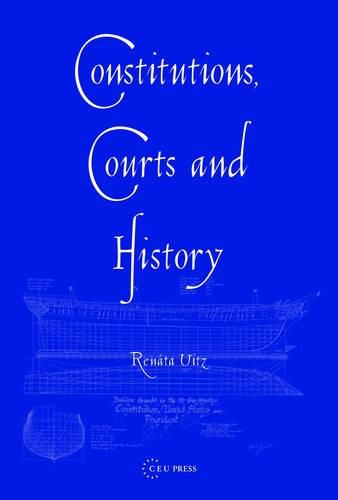Readings Newsletter
Become a Readings Member to make your shopping experience even easier.
Sign in or sign up for free!
You’re not far away from qualifying for FREE standard shipping within Australia
You’ve qualified for FREE standard shipping within Australia
The cart is loading…






Emphasizes the role history and historical narratives play in constitutional adjudication. Uitz provocatively draws attention to the often-tense relationship between the constitution and historical precedence highlighting the interpretive and normative nature of the law. Her work seeks to understand the conditions under which references to the past, history and traditions are attractive to lawyers, even when they have the potential of perpetuating indeterminacy in constitutional reasoning. Uitz conclusively argues that this constitutional indeterminacy is obscured by ‘judicial rhetorical toolkits’ of continuity and reconciliation that allow the court’s reliance on the past to be unaccounted for. Uitz’ rigorous analysis and extensive research makes this work an asset to legal scholars and practitioners alike. The inquiry in this volume hopes to attract observers of constitutional adjudication, may they be reading constitutional jurisprudence from the quarters of constitutional law, constitutional history, political science or history departments.
$9.00 standard shipping within Australia
FREE standard shipping within Australia for orders over $100.00
Express & International shipping calculated at checkout
Emphasizes the role history and historical narratives play in constitutional adjudication. Uitz provocatively draws attention to the often-tense relationship between the constitution and historical precedence highlighting the interpretive and normative nature of the law. Her work seeks to understand the conditions under which references to the past, history and traditions are attractive to lawyers, even when they have the potential of perpetuating indeterminacy in constitutional reasoning. Uitz conclusively argues that this constitutional indeterminacy is obscured by ‘judicial rhetorical toolkits’ of continuity and reconciliation that allow the court’s reliance on the past to be unaccounted for. Uitz’ rigorous analysis and extensive research makes this work an asset to legal scholars and practitioners alike. The inquiry in this volume hopes to attract observers of constitutional adjudication, may they be reading constitutional jurisprudence from the quarters of constitutional law, constitutional history, political science or history departments.